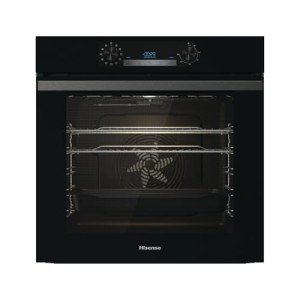The Integrated Kitchen: Redefining Culinary Spaces
The modern-day kitchen has actually progressed beyond a mere cooking area; it has actually changed into a multifunctional area that embodies the modern way of life. One of the crucial principles that have actually emerged to support this development is the integrated kitchen. This article looks into the concept of integrated kitchens, their benefits, design factors to consider, and regularly asked questions, supplying an extensive guide for house owners and interior decoration enthusiasts alike.
What is an Integrated Kitchen?
An integrated kitchen describes a design approach where the kitchen flawlessly blends with the living areas of a home. This concept aims to produce a cohesive atmosphere where cooking, dining, and mingling can occur without harsh borders. Integrated cooking areas frequently feature open designs, minimalist cabinets, and contemporary appliances that contribute to a streamlined visual.
Key Features of Integrated Kitchens
Integrated kitchen areas frequently share several typical attributes that identify them from traditional kitchen designs:
- Open Layout: Integration of kitchen, dining, and living areas promotes interaction and fluidity.
- Minimalist Design: Emphasis on tidy lines and simpleness, typically with concealed appliances and cabinets.
- High-Quality Materials: Use of resilient and aesthetically pleasing products, such as quartz, stainless-steel, and natural woods.
- Smart Technology: Incorporation of clever appliances that improve convenience and effectiveness in cooking and maintenance.
- Multi-functional Elements: Features like kitchen islands that work as cooking locations, dining areas, and social centers.
Advantages of an Integrated Kitchen
The rise in appeal of integrated kitchen areas can be credited to a range of advantages they provide:
| Benefit | Description |
|---|---|
| Improved Aesthetics | Integrated kitchen areas create a clean and consistent appearance that enhances the total appeal of living areas. |
| Social Interaction | Open designs encourage family events and interacting socially while cooking or dining. |
| Increased Space | Removal of physical barriers between spaces offers a more large sensation, which is particularly beneficial for smaller sized homes. |
| Improved Functionality | A well-planned integrated kitchen enhances the cooking and entertaining process by supplying easy access to essentials. |
| Worth Addition | Integrated cooking areas can improve residential or commercial property worth and attract possible purchasers, thanks to their contemporary style and performance. |
Design Considerations for Integrated Kitchens
Producing an integrated kitchen requires thoughtful preparation and factor to consider of various design components. Here are some vital aspects to bear in mind:
Layout Planning:
- An open layout helps with a smooth flow in between areas.
- Zoning can help specify areas for cooking, dining, and relaxation without blocking movement.
Color design:
- A cohesive color scheme ties together the kitchen with nearby locations.
- Light colors can make the space appear larger, while darker tones add heat and depth.
Storage Solutions:
- Utilize clever storage options like pull-out cabinets and integrated shelving to minimize mess.
- Consider using furniture that supplies extra storage, such as ottomans or coffee tables.
Lighting:
- Adequate and layered lighting is crucial to develop a welcoming atmosphere.
- Use a mix of job, ambient, and accent lighting to enhance performance and appeal.
Picking the Right Appliances:
- Select appliances that fit effortlessly into kitchen cabinetry to maintain a clean look.
- Energy-efficient options can conserve expenses and contribute to a sustainable kitchen.
A Sample Layout for an Integrated Kitchen
| Location | Description |
|---|---|
| Cooking Zone | Main island with a cooktop and counter area for food prep. |
| Consuming Area | Surrounding dining table that matches the kitchen aesthetic appeals. |
| Relaxation Zone | A little seating location or bar stools at the island for casual gatherings. |
| Storage Solutions | Built-in cabinets and racks that provide ample storage without bulkiness. |
| Transitioning Space | A neutral color palette that perfectly transitions into the living room space. |
Regularly Asked Questions (FAQs)
1. What are the advantages of an integrated kitchen over a conventional kitchen design?
Integrated kitchen areas cultivate a more social and fluid environment, typically supplying much better space utilization and contemporary aesthetic appeals. They are specifically appealing to families and those who enjoy entertaining.
2. How can I accomplish a seamless look in my integrated kitchen?
To accomplish a seamless look, use consistent colors, materials, and creates throughout the kitchen and adjoining locations. Integrating cabinetry and appliances with the exact same finish helps lessen visual clutter.
3. Is integrated electric oven and hob integrated kitchen appropriate for small homes?
Absolutely! Integrated kitchen areas can take full advantage of area in smaller sized homes by getting rid of unneeded walls and creating a more open feel. Utilizing creative storage services and multi-functional furnishings can further enhance effectiveness.
4. What styles work best for an integrated kitchen?
Contemporary, contemporary, and minimalist designs lend themselves well to integrated kitchens. However, individual choices can cause distinct blends that record private taste while keeping consistency with the remainder of the home.
5. How do I select the right materials for an integrated kitchen?
Select materials that are not only visually pleasing but also resilient and easy to maintain. Think about factors like wetness resistance for kitchen countertops and floor covering, along with the total comfort and appeal of the materials used throughout the space.
The integrated kitchen represents a significant shift in how we view our cooking areas. By merging performance with aesthetic elegance, homeowners can enjoy an area that caters to their cooking needs while welcoming family and buddies to collect and interact socially. As trends continue to develop, the integrated kitchen will likely stay at the leading edge of home design, making it vital for those aiming to develop both a gorgeous and useful living environment.

